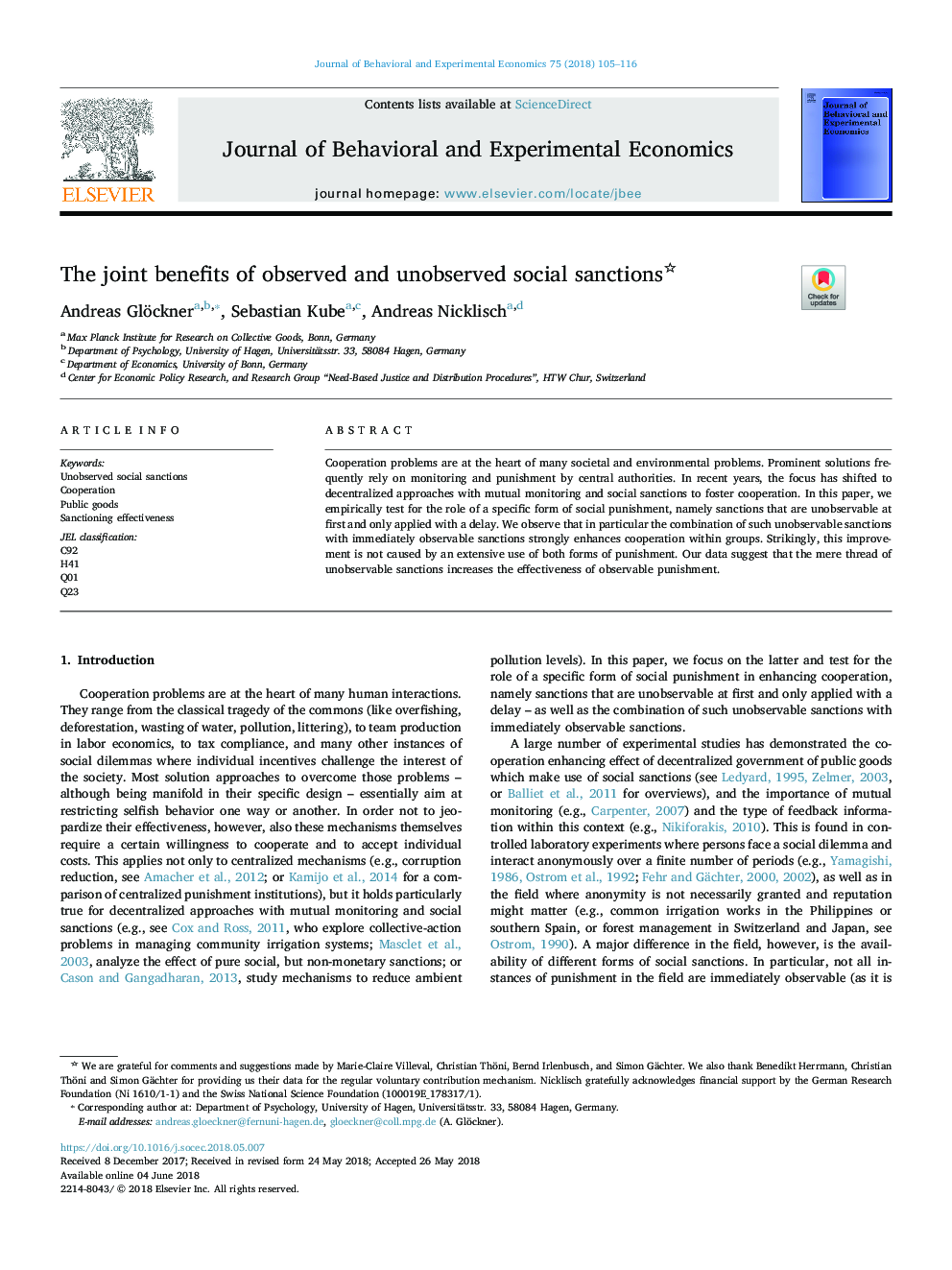| Article ID | Journal | Published Year | Pages | File Type |
|---|---|---|---|---|
| 7241927 | Journal of Behavioral and Experimental Economics | 2018 | 12 Pages |
Abstract
Cooperation problems are at the heart of many societal and environmental problems. Prominent solutions frequently rely on monitoring and punishment by central authorities. In recent years, the focus has shifted to decentralized approaches with mutual monitoring and social sanctions to foster cooperation. In this paper, we empirically test for the role of a specific form of social punishment, namely sanctions that are unobservable at first and only applied with a delay. We observe that in particular the combination of such unobservable sanctions with immediately observable sanctions strongly enhances cooperation within groups. Strikingly, this improvement is not caused by an extensive use of both forms of punishment. Our data suggest that the mere thread of unobservable sanctions increases the effectiveness of observable punishment.
Keywords
Related Topics
Social Sciences and Humanities
Economics, Econometrics and Finance
Economics and Econometrics
Authors
Andreas Glöckner, Sebastian Kube, Andreas Nicklisch,
